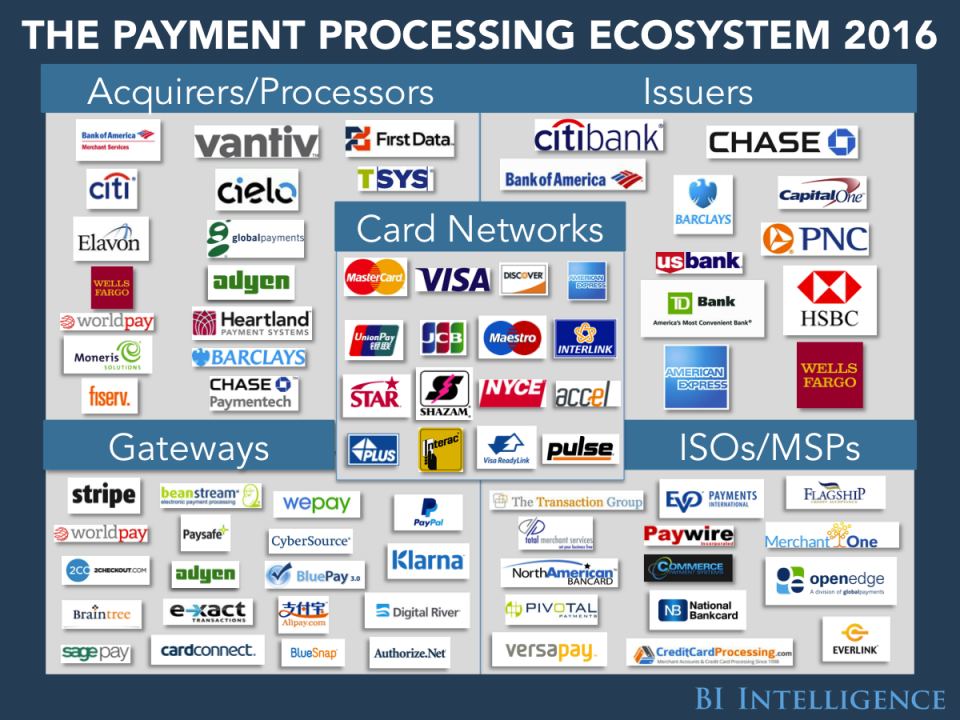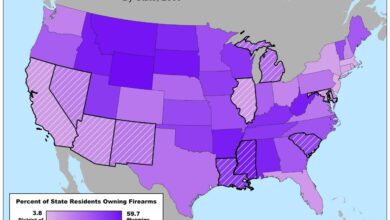
24 Attorneys General Demand Credit Card Gun Sale Tracking Halt
24 attorneys general demand credit card companies drop plans to track gun sales. This bold move throws a wrench into the gears of a burgeoning debate surrounding privacy, Second Amendment rights, and the potential for Big Data to be used in ways that many find unsettling. The attorneys general argue that such tracking constitutes an unacceptable invasion of privacy and could potentially chill the exercise of Second Amendment rights.
This isn’t just a legal battle; it’s a clash of ideologies, pitting concerns about public safety against fundamental rights.
The heart of the matter lies in the credit card companies’ proposed system for identifying gun purchases. While the companies claim this data would help law enforcement combat illegal firearm trafficking, critics argue that it opens the door to broader surveillance and profiling. The potential for misuse of this sensitive information looms large, raising concerns about how this data might be used in the future.
This legal challenge is far-reaching, and the outcome could have significant implications for both consumer privacy and gun rights.
The Attorneys General’s Demand
Twenty-four state attorneys general recently issued a demand to major credit card companies, urging them to abandon plans to create a new merchant category code (MCC) specifically for firearm sales. This action stems from concerns that such a code would facilitate the tracking of gun purchases and potentially lead to discriminatory practices against gun owners. The legal basis for their demand rests on arguments related to consumer privacy, potential violations of existing state laws, and the potential for unfair and discriminatory practices.
Legal Basis for the Demand
The attorneys general argue that the proposed MCC violates existing state laws protecting consumer privacy and the right to purchase firearms legally. They contend that the creation of a distinct MCC for firearm sales would lead to the compilation of sensitive data on gun owners, potentially exposing them to unwarranted scrutiny and discrimination. The legal arguments center on the potential for this data to be misused, leading to profiling and potential violations of individuals’ Second Amendment rights.
While the specific legal statutes cited may vary by state, the core argument rests on the potential for misuse of consumer data and infringement on existing state laws.
Concerns Regarding Gun Sale Tracking
The attorneys general’s primary concern is that the creation of a dedicated MCC for firearm sales will create a comprehensive database of gun purchases. This database, they argue, could be misused by governments or private entities to target gun owners, potentially leading to discriminatory practices such as denial of services or increased insurance premiums. Furthermore, they express worry about the potential for this information to be leaked or accessed illegally, putting gun owners at risk.
The potential for chilling effects on the legal exercise of Second Amendment rights is also a significant concern raised by the attorneys general.
Twenty-four attorneys general are fighting back against credit card companies’ plans to track gun sales, arguing it’s an invasion of privacy. This comes at a time when the legal battles are heating up elsewhere; a judge, as reported in this article, judge signals intent to back trumps request for mar a lago special master , highlighting how much is at stake in different areas of legal contention.
Ultimately, the fight against gun sale tracking underscores the broader concerns about government overreach and individual liberties.
Participating States and Attorneys General
A complete list of the participating states and their respective attorneys general is not readily available in a publicly accessible, consistently updated format. However, news reports from the time of the demand indicated participation from a broad range of states representing diverse political landscapes. Obtaining a precise, current list requires consulting multiple news sources and official state government websites.
It’s important to note that this list may change as more states join or withdraw from the coalition.
Summary of Key Arguments
| Argument | Explanation | Potential Consequence | Legal Basis |
|---|---|---|---|
| Violation of Consumer Privacy | Creation of a dedicated MCC leads to the tracking of sensitive personal information. | Increased surveillance and potential for discrimination. | State consumer privacy laws. |
| Discriminatory Practices | Data on gun purchases could be used to deny services or unfairly target gun owners. | Unfair treatment and infringement on Second Amendment rights. | State and federal anti-discrimination laws. |
| Data Security Concerns | The risk of data breaches and unauthorized access to sensitive information. | Identity theft and potential for harassment of gun owners. | Data security and breach notification laws. |
| Chilling Effect on Second Amendment Rights | The fear of surveillance and potential repercussions could deter legal gun ownership. | Restriction on the lawful exercise of Second Amendment rights. | Second Amendment jurisprudence. |
Credit Card Companies’ Plans

The recent announcement by several credit card companies regarding plans to track gun sales has ignited a firestorm of controversy. These plans, while presented as a means to improve fraud detection and enhance security, have raised serious concerns about individual privacy and the potential for misuse of sensitive data. Understanding the details of these proposed systems is crucial to evaluating their potential impact.The proposed methods for tracking gun sales involve leveraging existing merchant category codes (MCCs) assigned to firearm retailers.
Credit card companies would analyze transaction data associated with these MCCs to identify gun purchases. This analysis could involve aggregating data to identify trends and patterns, potentially flagging suspicious activity based on pre-defined criteria. The specific algorithms and data points used remain largely undisclosed, fueling concerns about transparency and accountability.Credit card companies anticipate several benefits from implementing this tracking system.
Twenty-four attorneys general are fighting back against credit card companies’ plans to monitor gun sales, arguing it’s an invasion of privacy. This feels like another piece of the puzzle, echoing Rep. Gohmert’s warning about the FBI raid – check out his take on it here: rep gohmert on fbi raid this is just the start of the snowball rolling – and how it might connect to this broader push for increased surveillance.
Ultimately, the fight against these credit card tracking plans is just one front in a larger battle over individual liberties.
They argue that it will enhance fraud detection by identifying potentially fraudulent transactions involving firearms. Additionally, they suggest that this data could be used to assess risk and potentially adjust pricing or credit limits for individuals based on their purchasing history. The companies also claim the data could aid law enforcement investigations, though this remains a point of contention.Privacy concerns surrounding the tracking of gun sales data are substantial.
The collection and analysis of this sensitive information raises questions about potential discrimination against gun owners, the possibility of data breaches leading to identity theft, and the potential for government access to this data without proper oversight. The lack of transparency around data usage and sharing practices further exacerbates these concerns. Critics argue that the benefits cited by the credit card companies are outweighed by the significant risks to individual privacy and the potential for chilling effects on the exercise of Second Amendment rights.Similar data tracking practices exist in various industries.
Twenty-four attorneys general fighting credit card companies’ gun sale tracking plans highlight the ongoing battles over data privacy. This reminds me of the legal wrangling surrounding the Trump search, where, as reported by ex FBI boss says the FBI Trump search warrant could be suppressed , questions of due process are paramount. Ultimately, both situations underscore the importance of carefully considering the implications of data collection and its potential impact on individual rights.
For example, retailers frequently track purchasing habits to personalize marketing efforts and predict consumer behavior. Health insurance companies collect and analyze health data to assess risk and determine premiums. However, the sensitive nature of firearm purchases raises unique ethical and legal challenges not present in other contexts. The potential for this data to be misused for purposes beyond fraud detection is a major point of concern, especially given the politically charged nature of gun ownership in the United States.
Second Amendment Implications: 24 Attorneys General Demand Credit Card Companies Drop Plans To Track Gun Sales

The 24 attorneys general’s challenge to credit card companies’ plans to track gun sales raises significant Second Amendment concerns. The potential for this data to be misused, either intentionally or unintentionally, to restrict firearm access for law-abiding citizens is a major point of contention. This debate requires a careful examination of the potential impacts on individual rights and the existing regulatory landscape surrounding firearm sales.The proposed tracking system, unlike existing background check systems which primarily focus on verifying the legality of a purchase at the point of sale, creates a comprehensive, longitudinal record of firearm acquisitions.
This differs significantly from the current system, which focuses on immediate legality rather than building a profile of firearm ownership over time. While background checks provide a snapshot, this new system would create a dynamic, continuously updated record.
Comparison with Existing Monitoring Methods
Current methods for monitoring firearm sales primarily involve background checks conducted through the National Instant Criminal Background Check System (NICS). These checks verify the purchaser’s eligibility based on existing criminal records and other disqualifying factors. However, NICS data is limited in scope and doesn’t track subsequent sales or transfers of firearms. The proposed credit card tracking system, in contrast, could potentially create a far more comprehensive record of firearm transactions, including details about the type of firearm purchased and the frequency of purchases.
This difference in scope and detail presents a significant distinction between existing regulatory frameworks and the proposed system.
Impact on Access to Firearms
The potential impact on access to firearms is multifaceted. While proponents of the tracking system might argue it could assist in law enforcement investigations, opponents argue it could be used to create a registry of firearm owners, facilitating future restrictions on gun ownership. The sheer volume of data collected and the potential for its misuse could create a chilling effect, discouraging legal gun owners from exercising their Second Amendment rights.
For example, if insurance companies or employers were to access this data, it could lead to discrimination against individuals who own firearms, impacting their ability to secure insurance or employment. This potential for indirect restriction on access represents a significant concern.
Arguments For and Against the Tracking System
Arguments in favor of the tracking system often center on its potential to assist law enforcement in tracing firearms used in crimes. Proponents suggest that this enhanced tracking capability could lead to a reduction in gun violence. However, this argument overlooks the potential for abuse and the chilling effect on Second Amendment rights.Conversely, arguments against the system highlight the potential for government overreach and the creation of a de facto national gun registry.
Opponents argue that such a registry could be used to disarm law-abiding citizens, violating their Second Amendment rights. They also point to the lack of evidence that such a system would significantly reduce gun violence, arguing that focusing on enforcing existing laws and addressing the root causes of violence would be more effective. The core of the debate hinges on differing interpretations of the Second Amendment and the balance between public safety and individual liberties.
The potential for unintended consequences, particularly concerning the erosion of Second Amendment rights, is a central concern for opponents.
Potential Consequences
The 24 attorneys general’s demand throws down the gauntlet, challenging credit card companies’ plans to track gun sales and raising significant legal and economic questions. The potential fallout from this conflict could reshape the landscape of consumer data privacy and the Second Amendment’s practical application in the digital age. Let’s delve into the potential ramifications.The legal ramifications for credit card companies choosing to proceed with their plans despite the attorneys general’s objections are considerable.
They could face multiple lawsuits alleging violations of state and potentially federal consumer protection laws. These lawsuits could claim the data collection is intrusive, lacks transparency, and potentially violates consumers’ privacy rights. The legal battles could be lengthy, expensive, and ultimately damaging to the companies’ reputations. Depending on the outcome of these legal challenges, credit card companies could face significant fines, be forced to alter their data collection practices, or even face restrictions on their operations.
Legal Ramifications for Credit Card Companies
The legal landscape surrounding consumer data is complex and ever-evolving. States have differing laws regarding data privacy, and federal laws like the Fair Credit Reporting Act (FCRA) and the Gramm-Leach-Bliley Act (GLBA) offer some protections but also allow for exceptions under certain circumstances. A key question will be whether the collection of gun purchase data constitutes a legitimate business purpose under these existing regulations.
Furthermore, the attorneys general’s arguments will likely center on the potential for misuse of this data, highlighting the risk of discrimination or profiling based on Second Amendment activities. Precedent exists in cases involving data breaches and the misuse of personal information; these cases often result in significant financial penalties and reputational damage for the offending companies. For example, the Equifax data breach led to substantial fines and legal settlements.
The outcome of this conflict will depend heavily on the legal arguments presented and the interpretation of existing laws by the courts.
Economic Consequences for Credit Card Companies
The economic consequences for credit card companies depend on their chosen course of action. Compliance with the attorneys general’s demand might involve significant investment in altering data collection and processing systems, potentially impacting profitability. Furthermore, it could lead to negative publicity and damage to their brand image among consumers who value their Second Amendment rights. Conversely, resisting the demand and facing legal challenges could prove far more costly.
Legal fees, potential fines, and settlements could significantly outweigh the potential economic benefits of tracking gun sales. The potential loss of consumer trust and subsequent boycotts would also have a substantial negative impact on revenue. A hypothetical scenario could see a major credit card company facing a series of class-action lawsuits, leading to millions of dollars in legal fees and settlements, significantly impacting shareholder value and potentially triggering a drop in stock prices.
The economic consequences could therefore be far-reaching and potentially devastating, regardless of the chosen path.
Examples of Previous Legal Challenges Involving Sensitive Consumer Data
Several past legal battles provide relevant context. The ongoing debate surrounding facial recognition technology and its use by law enforcement agencies has highlighted concerns about potential biases and violations of privacy rights. Similarly, cases involving the collection and use of location data by various companies have resulted in legal challenges and settlements. These cases demonstrate the complexities involved in balancing legitimate business interests with consumer privacy and the potential for significant legal and financial repercussions when these interests clash.
The use of genetic information by insurance companies or employers has also generated significant legal and ethical scrutiny, further illustrating the complexities of protecting sensitive consumer data. These examples highlight the potential for similar legal challenges related to the tracking of gun sales data.
Hypothetical Scenario and Possible Outcomes, 24 attorneys general demand credit card companies drop plans to track gun sales
Let’s imagine a scenario where a major credit card company ignores the attorneys general’s demand and proceeds with its plans to track gun sales. Several states immediately file lawsuits, alleging violations of state consumer protection laws. The company counters, arguing that the data collection is for legitimate fraud prevention purposes. Public opinion is divided, with some consumers supporting the company’s right to collect data and others expressing concerns about privacy violations.
After a lengthy and costly legal battle, a federal court rules against the credit card company, citing violations of consumer privacy laws. The company is forced to pay substantial fines, alter its data collection practices, and faces reputational damage. This scenario demonstrates the high stakes involved and the potential for significant negative consequences for credit card companies that choose to resist the demand.
Public Opinion and Reaction

The 24 attorneys general’s demand to halt credit card companies’ plans to track gun sales ignited a firestorm of public debate, revealing deep divisions within American society. The issue touched upon core beliefs regarding gun rights, privacy, and the role of corporations in social and political matters. The reaction was far from monolithic, with passionate arguments emerging from various stakeholder groups.The intensity of the public reaction surprised many.
Social media platforms became battlegrounds, with hashtags like #GunData and #SecondAmendmentRights trending for days. Traditional media outlets, from cable news to major newspapers, dedicated significant coverage to the story, fueling further discussion and often contributing to the polarization of opinions. The public discourse reflected pre-existing divisions, with opinions often aligning with pre-existing political affiliations and beliefs.
Perspectives of Stakeholders
The demand sparked a diverse range of reactions from various stakeholder groups. Each group brought unique perspectives and arguments to the table, shaping the overall public discourse.The arguments presented by these groups were often diametrically opposed, making a unified public consensus difficult to achieve. The intensity of these differing viewpoints highlighted the deeply rooted nature of the gun control debate in the United States.
- Gun Rights Advocates: These individuals and organizations strongly opposed the tracking initiative, viewing it as a violation of the Second Amendment and a slippery slope towards stricter gun control measures. They argued that such tracking would create a registry of gun owners, potentially leading to future infringements on their rights. Many expressed fears of government overreach and a potential chilling effect on legal gun ownership.
One could almost visualize a sea of determined faces at a gun rights rally, signs held high, proclaiming their constitutional rights and opposition to what they saw as an infringement on their liberties.
- Gun Control Advocates: Conversely, many gun control advocates supported the credit card companies’ plans, arguing that tracking gun sales could help law enforcement agencies prevent gun violence. They emphasized the potential for identifying patterns of illegal gun trafficking and holding irresponsible gun dealers accountable. Their image was one of quiet determination, fueled by a desire for safer communities and a belief that responsible data collection could be a valuable tool in reducing gun violence.
- Privacy Advocates: This group expressed concerns about the potential for misuse of personal data, regardless of the specific application to gun sales. They argued that tracking any consumer purchase, especially one as sensitive as firearms, raises significant privacy implications and could lead to profiling and discrimination. Their concerns transcended the gun debate itself, focusing on the broader issue of data security and individual liberties in the digital age.
One could picture them as cautious observers, highlighting the potential for abuse of power and emphasizing the need for robust data protection laws.
Main Arguments Summarized
The core arguments of each stakeholder group can be summarized as follows:
- Gun Rights Advocates: Violation of Second Amendment rights; creation of a gun registry; government overreach; chilling effect on legal gun ownership.
- Gun Control Advocates: Improved law enforcement capabilities; prevention of gun violence; identification of illegal gun trafficking; accountability for irresponsible gun dealers.
- Privacy Advocates: Potential for data misuse; privacy violations; profiling and discrimination; need for stronger data protection laws.
The battle lines are drawn: 24 attorneys general versus major credit card companies. The fight over tracking gun sales through credit card transactions is far from over, and the stakes are incredibly high. The outcome will significantly impact not only the future of firearm sales monitoring but also the broader conversation surrounding consumer privacy and government oversight in the digital age.
This case sets a crucial precedent, one that will likely shape debates about data collection and its implications for years to come. Whether this represents a victory for privacy rights or a setback for law enforcement remains to be seen, but one thing is certain: this is a story that will continue to unfold.






